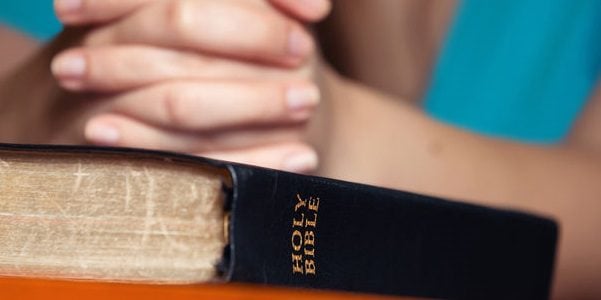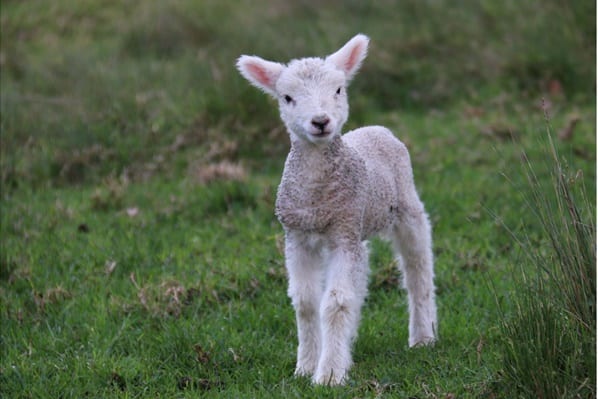The Psalms have a bad reputation in many circles. Atheists criticize the Psalms, and the Bible in general, for being violent and bloodthirst. It’s hard to disagree when one Psalm prays that God will dash the heads of the babies of Israel’s enemies against giant rocks.
Ouch.
How the Bible Subverts Violence
But the French anthropologist René Girard taught us that we shouldn’t be surprised that there’s violence in the Bible. After all, human history has taught us that we have a penchant for violence. Animals can be violent, too, of course. But animals have an instinctive mechanism that generally stops them from killing their own kind. Alpha males exert dominance, but they don’t kill.
Humans, on the other hand, do kill. No other species on the planet has perfected killing like the human species. And let’s not be fooled by the myth of progress. Sure, I’m glad I don’t live in an ancient society where “justice” was executed through endless cycles of revenge. Modern court systems have actually helped mitigate those cycles of revenge. But, our ancient ancestors might say they were glad they didn’t live during an age that was on the brink of nuclear annihilation.
To be sure, our ancestors prayed that God would be on their side and against their enemies. They often had an “us and them” worldview that they justified with divine language. But for us moderns, who needs God when you have nukes?
But this article isn’t about doom and gloom. It’s about hope. And it’s about finding hope in the Psalms. Girard wasn’t surprised to find violence running throughout the Bible. What did surprise him was that the Bible had an alternative nonviolent strand. This Biblical strand does two things. First, it begins to separate violence from God. We see this strand in the Genesis creation accounts all the way through the nonviolent God concretely revealed in Jesus Christ. Second, this strand deconstructed the “us and them” worldview.
The Nonviolence of Psalm 8
Take Psalm 8, for example. This Psalm doesn’t deny that there are people out to do us harm. It describes these people as “foes,” “enemies,” and “avengers.” But how does God stop Israel’s enemies? Not through military violence or even divine violence. Rather, God defeats through the power of babies and infants. “Out of the mouths of babes and infants you have founded a bulwark because of your foes, to silence the enemy and the avenger” (Psalm 8:2).
How do “the mouths of babes and infants” stop the enemies of Israel? The Psalm doesn’t answer. But it’s an interesting portrayal of babies and infants. Nowhere in the ancient world do we see babies used as a model for how to be in the world, let alone for how to defeat an enemy. Maybe it’s their vulnerability. Or maybe it’s their innocence of the cycle of violence that models for us God’s desire for how we live our lives. Regardless, for Christians the vulnerable and nonviolent life, death, and resurrection of Jesus is vindication of the childlike nonviolence in Psalm 8.
But there’s more to this psalm. These might be the psalm’s most famous verses:
When I look to your heavens, the work of your finger,
the moon and the stars that you have established;
what are human beings that you are mindful of them,
mortals that you care for them? (v 3-4)
These verses are often interpreted to encourage a sense of humility and awe within us. The universe is so big! And we humans are so small! Why would God care about little old us?
That’s a good interpretation. In the face of climate change and the potential catastrophe of nuclear warfare, we could use a bit more humility and awe when it comes to the goodness of creation. But these verses from Psalm 8 make another move that is just as important – and often missed.
Considering human history, the author makes a remarkable claim. Notice that the psalmist insists that God cares for human beings. The author could have written,
When I look to your heavens, the work of your finger,
the moon and the stars that you have established;
what are Israelites that you are mindful of us,
the people of God that you care for us? (v 3-4)
But that’s not what the author wrote. The universe is too big for that! The vastness of the universe gave the author a vision of the vastness of God’s love. God doesn’t care for us and hate our enemies. God cares for all human beings.
With Psalm 8, there is no “us and them.” That worldview is deconstructed for a new and bigger way of relating to our fellow human beings. The ways we divide ourselves into hostile camps and cliques and tribes and families and political parties and nationalities and religions are deconstructed by this psalm. For we are all created in the image of God who loves and cares for all people.
Suggestions for Things to Do with Your Children
After reading Psalm 8, talk with your children about verse 2. Ask them to brainstorm how babes, infants, and children might help stop the violence in the world. What qualities do children have that create more peace?
Take a family walk at night. Observe and talk about the wonders of the universe. Talk about a time when you felt small, but also felt God’s care in your life. Or you could talk about a time when your “us and them” worldview was challenged and your vision of humanity became bigger.
For more, watch the video below!
Image: Girl praying over a Bible. Copyright: / 123RF Stock Photo
Stay in the loop! Like Teaching Nonviolent Atonement on Facebook!












